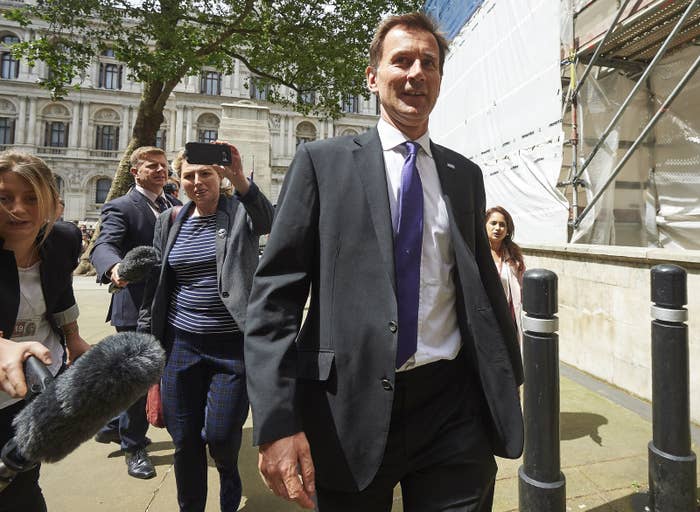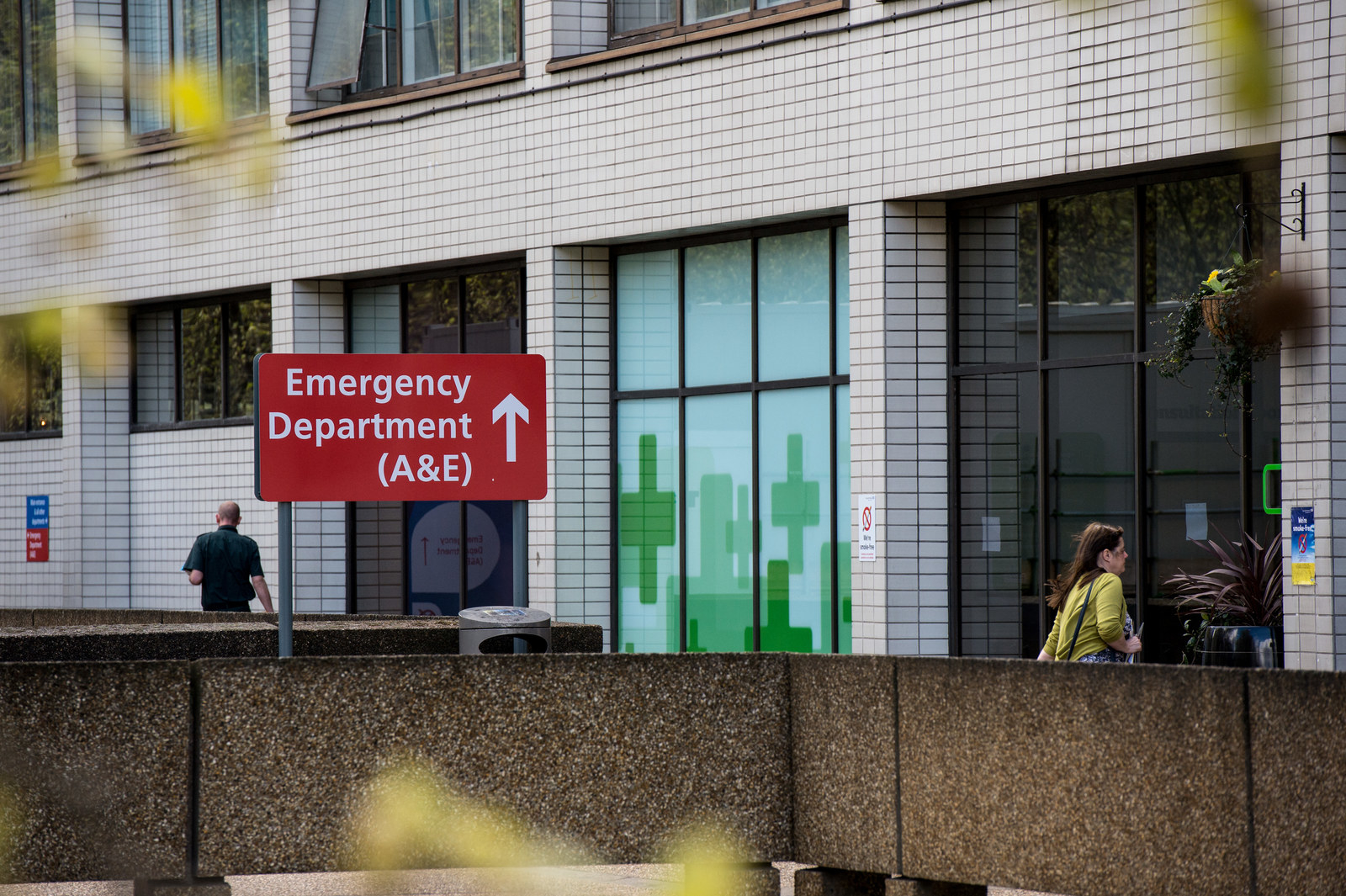
The government and junior doctors have been in dispute over Jeremy Hunt's proposed "7-day NHS" for over a year as a result of widespread concerns about its viability and whether it is able to tackle the problems it seeks to solve.
The health secretary believes increasing the number of doctors who work at weekends will bring down an excess number of deaths among people admitted to hospital between Friday and Monday.
Senior NHS figures, academics, and even the Department of Health's own civil servants are among those who have questioned Hunt's proposals.
Hunt, it seems, is one of the few people left who think the Tories' "truly 7-day NHS" – as promised in the party's 2015 election manifesto – will be a success when a controversial new contract is imposed on junior doctors in October.
These are the health secretary's key public critics and their reasons for challenging his reorganisation of the NHS workforce...
1. The Department of Health thinks there are too many "risks" involved in Hunt's plan.
In a "risk register" compiled by the Department of Health to identify potential problems with Hunt's plan, senior civil servants said they believed the workforce would be overloaded if new working structures were implemented, “meaning the full service cannot be delivered”.

The leaked documents, published earlier this week by The Guardian and Channel 4 News, expressed concern that there would not be enough money to employ more doctors to meet the demand. While Hunt says there have already been 10,000 more employed since 2010, NHS data suggests the real number is actually around half of that.
Civil servants also questioned whether the proposed changes would necessarily reduce the number of weekend deaths anyway.
2. Academics have said excess weekend deaths probably aren't a result of junior doctor staffing.
The Department of Health (or at least its press office) has said its commitment to seven-day services is based on "eight independent studies [that] have set out the evidence for a ‘weekend effect’ – unacceptable variation in care across the week".
This includes research by Nick Freemantle that found that in 2012, 11,000 more people died after going into hospital between Friday and Monday than on other days. Hunt has also said increased Saturday and Sunday services were needed because people are 20% more likely to die from a stroke at the weekend.
But while nobody is questioning the validity of these studies, academics are not sure whether their findings have anything to do with junior doctors working hours, not least because most junior doctors say they already work weekends.

Freemantle has distanced himself from Hunt's claims, saying that while he believes understaffing could contribute to weekend deaths, there are many other other factors at play. Dr Fiona Godlee, editor of the British Medical Journal, where the study was published, went one step further and accused Hunt of “misusing data to mislead the public”.
University College London's Professor Dave Curtis made a point of calling out the health secretary in a blog post titled "Nailing Hunt's Lies", highlighting that fewer people are admitted to hospital at weekends and that they are on average sicker than those admitted in the week, thus pushing up death rates.
A study by the University of Manchester echoed Curtis's view, showing that while the fewer, but generally sicker people admitted to hospital A&E at weekends resulted in an increased death rate, the actual number of people who died was smaller than during the week.
On that basis, increasing weekend staffing would make little difference to death rates.
3. Senior NHS figures are worried about where the funding for seven-day services will come from.
Simon Stevens, the chief executive of NHS England, initially backed Hunt's reforms but insisted that £8 billion of the NHS budget would have to be dedicated to seven-day services. In last November's spending review, then-chancellor George Osborne agreed to his request.
But he has since expressed concern that the economic impact of Brexit could jeopardise NHS funding. "When the British economy sneezes, the NHS catches a cold," he told the BBC's Andrew Marr shortly after Britain voted to leave the European Union.
"It would be very dangerous if at precisely the moment the NHS is going to need extra funding, at that moment the economy goes into a tailspin and that funding is not there."

Since the referendum, a new government has been assembled and the nosediving value of the pound has created a very different economic landscape. It will remain unclear whether the new chancellor, Phillip Hammond, will honour Osborne's promises until he delivers the Autumn Statement.
Even if medical bosses do manage to hang on to the funding, in February Charlie Massey, who was then director general for external relations at the Department of Health told the Health Select committee that he had no idea how much implementing seven-day services would cost anyway.
And while NHS England's medical director, Sir Bruce Keogh, was instrumental in plans for seven-day services, he has been highly critical of Hunt's handling of the policy. In March he told students at King's College London that the government's row with junior doctors had "derailed" the project. He called Hunt's decision to forcibly impose a new contract on junior doctors "one of the saddest days I have seen in the NHS".
4. The Labour party has called on prime minister Theresa May to launch an inquiry into plans for seven-day services.
Following revelations that even the Department of Health was questioning Hunt's plans, deputy Labour leader Tom Watson wrote to Theresa May asking her to urgently "address the deficits in planning, funding and staffing of the policy exposed by that document".
He said an inquiry should be launched into "(1) whether any demonstrable clinical benefits for patients will be derived from your seven-day policy and (2) whether said benefits will be a cost-effective way of spending NHS resources".
He added that it was "wholly unacceptable" to use the policy to justify imposing the new junior doctors contract in October in light of the "paucity of evidence underpinning the policy".

Labour MP for Tooting and former emergency medicine specialist Dr Rosena Allin Khan has also insisted that the government should not go ahead with the junior doctors contract, which alters pay structures to make it cheaper to rota more doctors at weekends, without evidence that it could improve seven-day services.
"By imposing the contract before a full investigation has been conducted, the government will be risking lives," she wrote. "A truly 7-day NHS should not be at the expense of our doctors, nurses, allied health professionals and all those who commit their lives to our NHS."
Allin-Khan's petition for the government to halt imposition of the contract has been signed by more than 2,500 people.
5. Junior doctors are outraged by the new contract.
Junior doctors have said they work plenty of Saturdays and Sundays already so Hunt's new contract simply means they will get paid less for work they already do.
As a result, 2016 has seen the first strikes by doctors since 1975, one of which included the temporary withdrawal even of emergency services.

One of the main concerns expressed by junior doctors is that making more doctors work at weekends without employing more doctors overall will put already understaffed wards under even greater pressure during the week. A survey of junior doctors published recently by The Observer showed that gaps in hospital rotas mean newly qualified doctors are sometimes left in charge of up to 100 patients at any one time.
The new junior doctors contract will start being rolled out in October, but doctors have said they will do whatever it takes to fight it.
“Forcing a contract on to juniors that they don’t feel that they can have confidence in, that they don’t feel is safe, is just not a road ahead they can accept,” Dr Ellen McCourt, chair of the British Medical Association's junior doctors committee, recently told BuzzFeed News.
It is expected that junior doctors will hold another strike against the contract in September.
